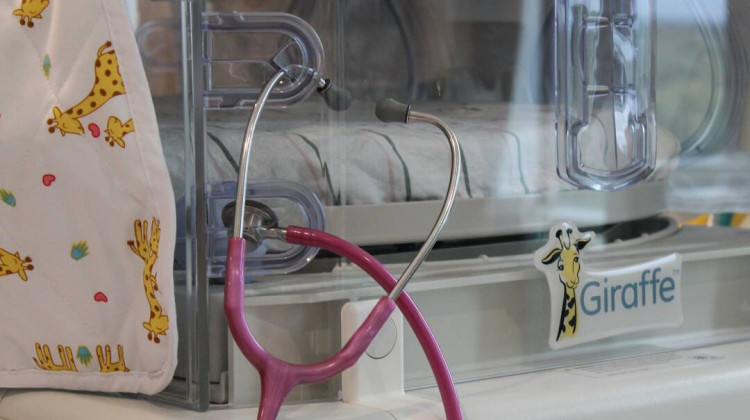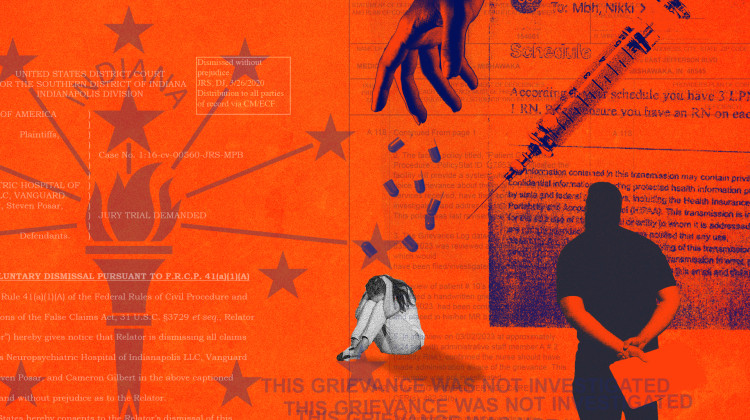Researchers at the Indiana University School of Medicine are partnering with NASA and the U.S. Army to conduct an experiment in space.
Melissa Kacena, professor of orthopaedic surgery, and her team are sending bone cells to the International Space Station. A drug will be used on the cells to see if it can combat osteoporosis—the common disease that affects astronauts and millions of people.
Kacena says astronauts lose 1 percent of their bone mass per month in space. On Earth, someone with very bad osteoporosis loses that amount in a year.
“I mean, there's things that can go wrong at every step, but if you can figure out how to send something into space, then you can pretty much tackle any problem,” Kacena says. “And we think that we can use the unique spaceflight environment to really understand bone loss and bone healing.”
Kacena says the patented drug they’re testing has worked well in mice, rats and pigs. The goal is to eventually test it in humans, because they believe it works better than what orthopedic surgeons are using now.
Kacena says one in two women over the age of 55 and one in four men over the age of 55 will have an osteoporotic fracture. Ushashi Dadwal, a postdoctoral fellow, will prepare the bone forming cells so they can get to the International Space Station.
“I hope the outcome is that our novel patented bone healing technique works really well with the cells and the cells are happy with it,” Dadwal says. “I’m just excited to get to NASA.”
Kacena and her team first met with people at the Army to discuss bone healing and space in 2012.
“We had a first mission in February 2017,” Kacena says. “We sent 40 mice up to the International Space Station, where they resided for about a month.”
On July 9, Kacena and eight IU School of Medicine researchers—including undergraduate—will go to the Kennedy Space Center at Cape Canaveral, Florida. The launch will happen July 21.
 DONATE
DONATE












 Support WFYI. We can't do it without you.
Support WFYI. We can't do it without you.